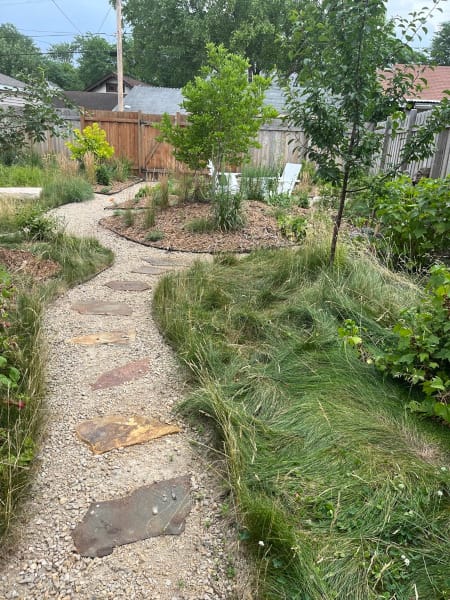With every landscape project, we strive to repair the Earth by creating naturalized systems, minimizing environmental impacts, protecting water, and providing year-round interest for both humans and creatures, all while meeting the practical and visual needs of our clients.
ECOLOGICAL LANDSCAPING
Founded in 2013, we are Light Dark Landscape, a comprehensive landscaping restoration and design-build team working at the nexus of landscape and restoration.
Transform your outdoor space with Minneapolis’ premier sustainable landscape company. Native plants, chemical-free methods, and beautiful designs that work with nature.
SERVICES
We’re a full service landscaping company that designs each project to fit our client’s needs. We design, install, and maintain landscapes with unique native plant palettes and features suited to the site. Our designs solve challenges, utilize materials that cohere with existing structures, and create visually pleasing spaces for people to enjoy.
Check out our services and process for working with us.
SUSTAINABILITY
Our big picture goal is to repair the Earth by slowing global warming, creating and connecting wildlife habitat, and restoring landscapes to an ecologically healthy and productive state.
We incorporate sustainable landscape design solutions that repair while maintaining human spaces. Learn about our balanced approach to sustainability and practical solutions for common landscaping needs.
Our design philosophy
Taking inspiration from nature’s subtleties – light, shadow, movement, sound, scent, color, texture – we design dynamic and immersive landscapes that engage all the senses and invite exploration.

ABOUT LIGHT DARK LANDSCAPE
Light Dark Landscape was founded on the principles of sustainability, beauty, and restoration. Whether our clients’ goals are to enjoy a meal outdoors, increase food production, create native pollinator habitat, or add a no-mow yard, we weave these principles into each landscape we design.
Our edgy-yet-classic style complements the architecture we work with, and above all, matches our client’s desires.

